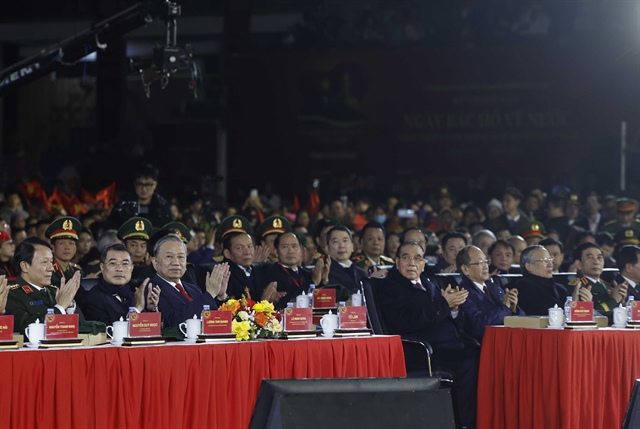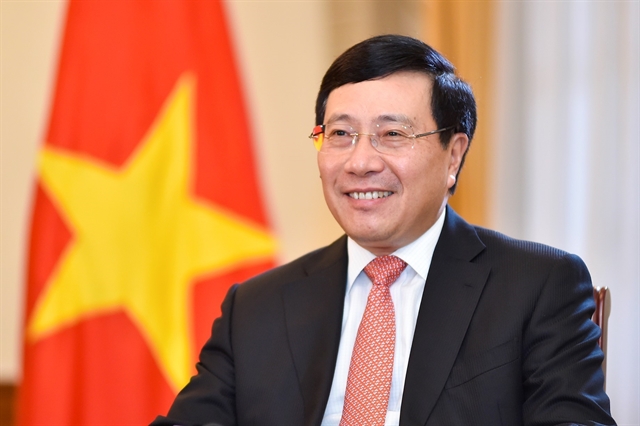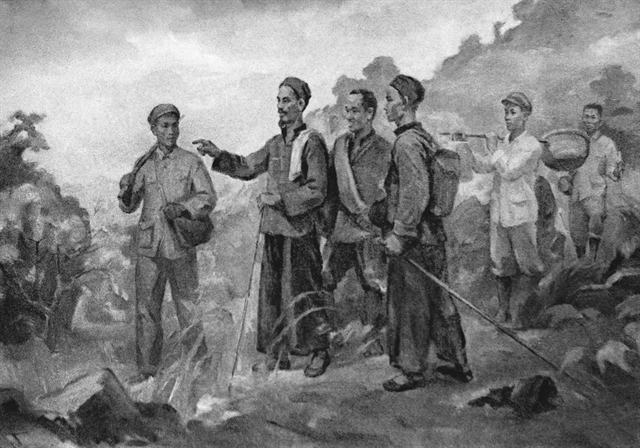 Politics & Law
Politics & Law

The relationship between Việt Nam and Germany has developed in both depth and breadth, and in an effective manner across all fields despite historical changes, Deputy Prime Minister and Foreign Minister Phạm Bình Minh has said.

|
| Deputy Prime Minister and Foreign Minister Phạm Bình Minh. — VNA/VNS Photo |
HÀ NỘI — The relationship between Việt Nam and Germany has developed in both depth and breadth, and in an effective manner across all fields despite historical changes, Deputy Prime Minister and Foreign Minister Phạm Bình Minh has said.
Minh wrote an article reviewing the past and future directions of bilateral ties on the occasion of the 45th founding anniversary of Việt Nam-Germany diplomatic ties (September 23).
He noted that Việt Nam and Germany set up diplomatic relations in 1975 but links between the two nations started a long time before then. The first German diplomats were sent to Sai Gon (now HCM City) in the middle of the 19th century to connect the two countries.
On his journey to seek measures to liberate the nation, President Hồ Chí Minh once stopped in Germany and later nurtured the friendship between the two nations.
Việt Nam is the only Southeast Asian nation to boast special links with Germany, with more than 100,000 students and workers studying and working in Germany in the 1950s, giving them a deep understanding of German language and culture. More than 170,000 Vietnamese people from different generations living in Germany have helped promote the diverse and unique relationship between the two countries, he said.
Over the past 45 years, bilateral ties have thrived thanks to close co-operation in politics, diplomacy, economy, and culture. Delegation exchanges have been conducted among ministries, sectors, and localities, along with diplomatic activities through party and parliamentary channels and people-to-people contacts.
The Hà Nội Declaration on the establishment of the strategic partnership between Việt Nam and Germany, which was signed in October 2011 during German Chancellor Angela Merkel’s visit to Việt Nam, was an important milestone shaping bilateral ties over the last 10 years, the Deputy PM said.
He noted that many co-operation mechanisms between the two sides have proven effective. Meanwhile, based on a firm foundation of sound political relations, the economic partnership between the two sides has flourished.
Germany has long been the largest trade partner of Việt Nam in Europe. Two-way trade has now doubled the 2010 figure, standing at more than US$10 billion and with growth exceeding 10 per cent each year.
The Deputy PM underlined that the EU-Việt Nam Free Trade Agreement (EVFTA) and the EU-Việt Nam Investment Protection Agreement (EVIPA), both of which took effect on August 1, are expected to create new and substantial opportunities for businesses of both sides.
As Việt Nam’s 18th-largest foreign investor, Germany has more than 300 businesses investing more than $2 billion in 361 projects in the Southeast Asian country.
Vietnamese enterprises, meanwhile, have 35 investment projects worth some $250 million in Germany, focusing on finance-banking, information technology, restaurants, and hotels.
Minh said that Việt Nam hopes to work with Germany to fully tap the co-operation potential between the two countries amid the fourth Industrial Revolution.
Alongside trade and investment, development co-operation is an important factor in bilateral relations, he said, emphasising that Việt Nam treasures and remembers the precious support the government and people of Germany gave the country during its national construction and development.
Over the last three decades, Germany has provided Việt Nam with official development assistance of more than $2 billion while sharing its experience in growth models as well as renewable energy exploitation, environmental protection, and vocational training, helping Việt Nam complete the Millennium Development Goals ahead of schedule and implement sustainable development goals.
In education, the Việt Nam-Germany University, capable of educating 12,000 students, has been finalised, while the teaching of Vietnamese and German in schools in the other country has been encouraged, and cultural and sports exchanges have brought people from both sides closer, Minh wrote.
Direct flights between the two countries, which opened 15 years ago, have met the demand for travel among the people of both countries.
From a multilateral standpoint, Việt Nam and Germany have worked closely and supported each other at regional and international forums such as ASEAN, the EU, ASEM, and the UN.
Both sides have shared common viewpoints and visions on multilateralism, order, and stability on the foundation of law, as well as the observation of international law and environmental protection. Việt Nam and Germany have regularly sought a common voice in the settlement of regional and global challenges, Minh said.
He noted that, in 2020, Việt Nam is performing the roles of non-permanent member of the UN Security Council and ASEAN Chair, while Germany is the rotating EU Chair for the second half of 2020.
He said the two sides have agreed to promote co-operation and seize opportunities to strengthen Asia-Europe connectivity, contributing to peace and stability in the two regions and security and development around the world.
Initiatives in the prevention and control of COVID-19 manifested a co-operative spirit, he added.
“Looking back on the history of the relationship between the two countries over the last four decades and more, he said, we are happy and proud of the dynamic and practical development of the bilateral strategic partnership. The outcomes of and great potential for co-operation are an important motivation for stronger and more extensive, intensive, and comprehensive cooperation between the two countries over the next decades, matching the interests and aspirations of the governments and people of both nations and for a world of peace, stability, and prosperity,” Minh wrote.
He also expressed confidence that with efforts and determination as well as the continued close friendship between the two nations, all goals will become reality shortly. — VNS




